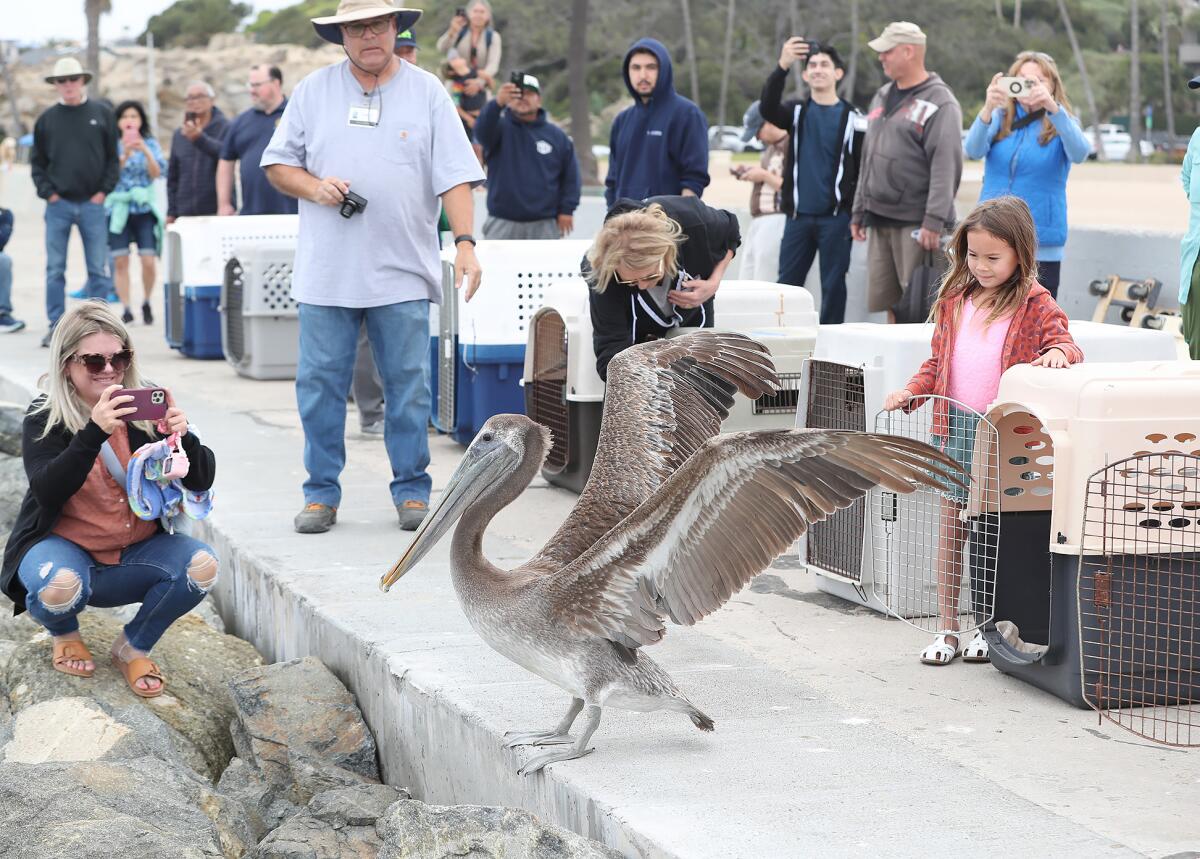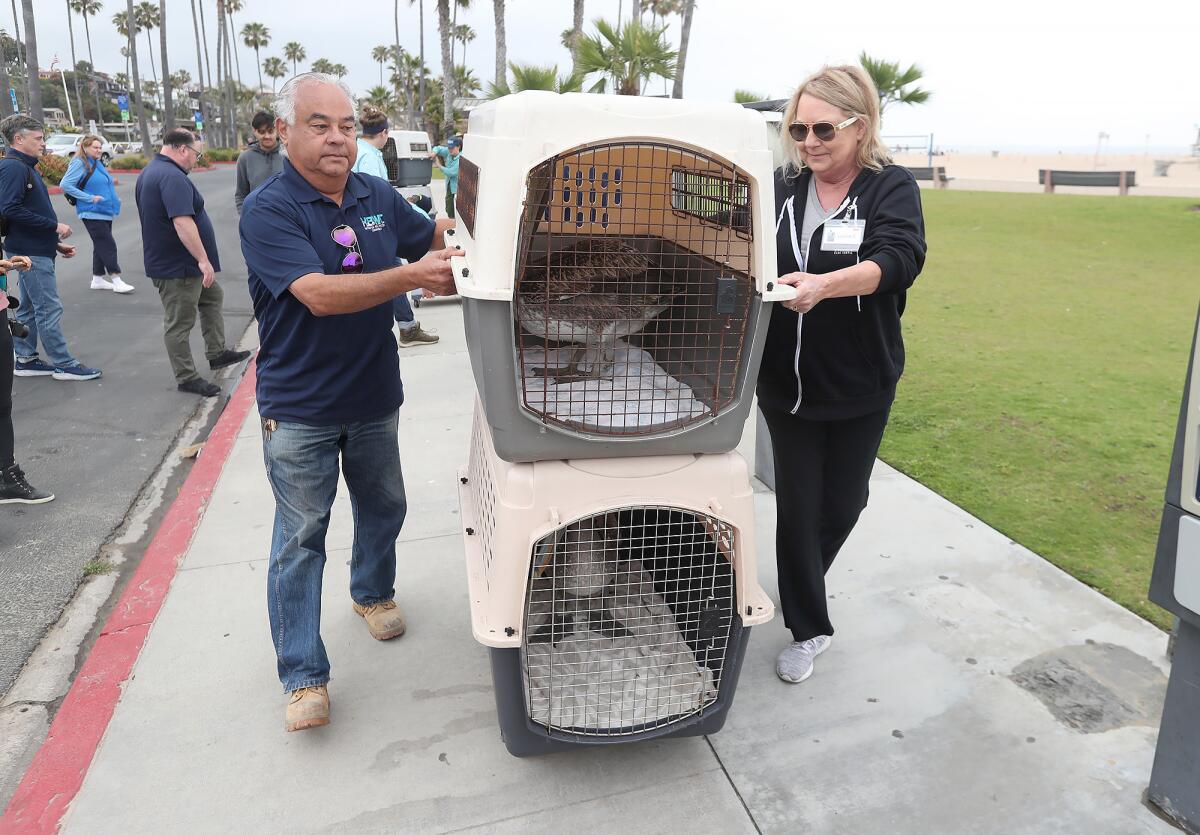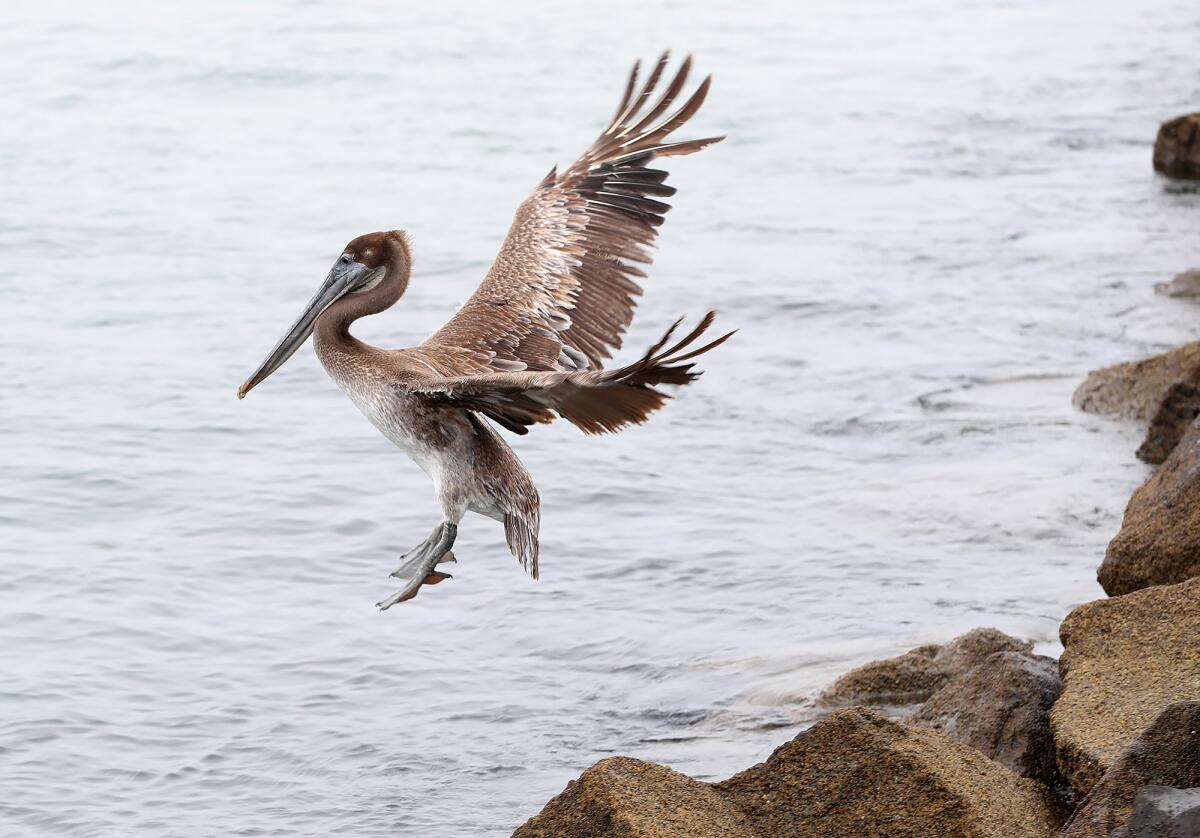10 down, 100 to go — brown pelicans released in Newport Beach after mass starvation

With a flutter and a flap — and much excitement from human onlookers — 10 brown pelicans were released Thursday at Corona del Mar State Beach, having survived a mass starvation event that’s perplexed wildlife officials up and down California’s coast.
Volunteers with the nonprofit Wetlands & Wildlife Care Center released what they anticipate to be the first of several rounds of rehabilitated seabirds that began arriving at the Huntington Beach facility in early April and are still trickling in.
“We have 10 healthy, fat pelicans back in the wild and 100 more to go,” Debbie McGuire, the center’s executive director, said after the Thursday morning release.

The occasion was a brief but happy moment in what’s been more than a month of devastation as wildlife agencies and rehabilitation centers report untold numbers of starved and emaciated brown pelicans from Santa Cruz County southward to San Diego and Baja.
A similar incident happened in spring of 2022 when some 800 birds were rendered flightless from starvation, mostly near Santa Barbara County. About half were treated and safely returned to the wild, according to the California Department of Fish and Wildlife.
This time around, however, Orange County has been ground zero for the sighting of brown pelicans suffering not only from critically low body weight, hypothermia and dehydration but parasites, fishing line entanglements and hook-related injuries.
The Wetlands & Wildlife Care Center has so far taken in 213 brown pelicans. Two enclosures — one for ducks and another for pelagic, water-dwelling birds — were commandeered for the new arrivals, while pup tents were erected to handle the overflow. Of those rescued birds, 105 have died, mostly due to extreme malnourishment.

“A few were dead on arrival, they were caught alive but didn’t make the trip,” McGuire said. “Most of them died within the first few hours of care, they were so critical, and about 10% had to be euthanized because their injuries were so bad.”
Some of the deceased birds are being sent to CDWF’s Wildlife Health Laboratory for further study, as officials with the department work alongside scientists from the National Oceanic and Atmospheric Administration to determine what could be causing the widespread starvation.
Populations of mackerel, anchovies and smelt, which comprise the bulk of the pelican diet, are currently plentiful in the Pacific, constituting an ample food source for other seabirds, such as cormorants, loons and grebes.
But unlike those species, which can plunge deep into the ocean to snag fish, pelicans are much shallower divers and may not be able to reach prey living at greater depths than usual.

“Why are the fish so low? That’s what we need to figure out,” McGuire said, wondering whether an oceanic transition from El Niño-related warm water patterns to cooler La Niña waters may be having an impact.
Meanwhile recovering pelicans continue to dominate the Huntington Beach Care Center, requiring up to 500 pounds of bait fish each day. An early donation from Redondo Beach Sportfishing & Whale Watch, followed by a discounted rate, is helpful, but much more will be needed in the days and weeks ahead.
“I should place an order today,” McGuire said Thursday. “It’s a long weekend, I probably need a ton — literally.”
All the latest on Orange County from Orange County.
Get our free TimesOC newsletter.
You may occasionally receive promotional content from the Daily Pilot.




